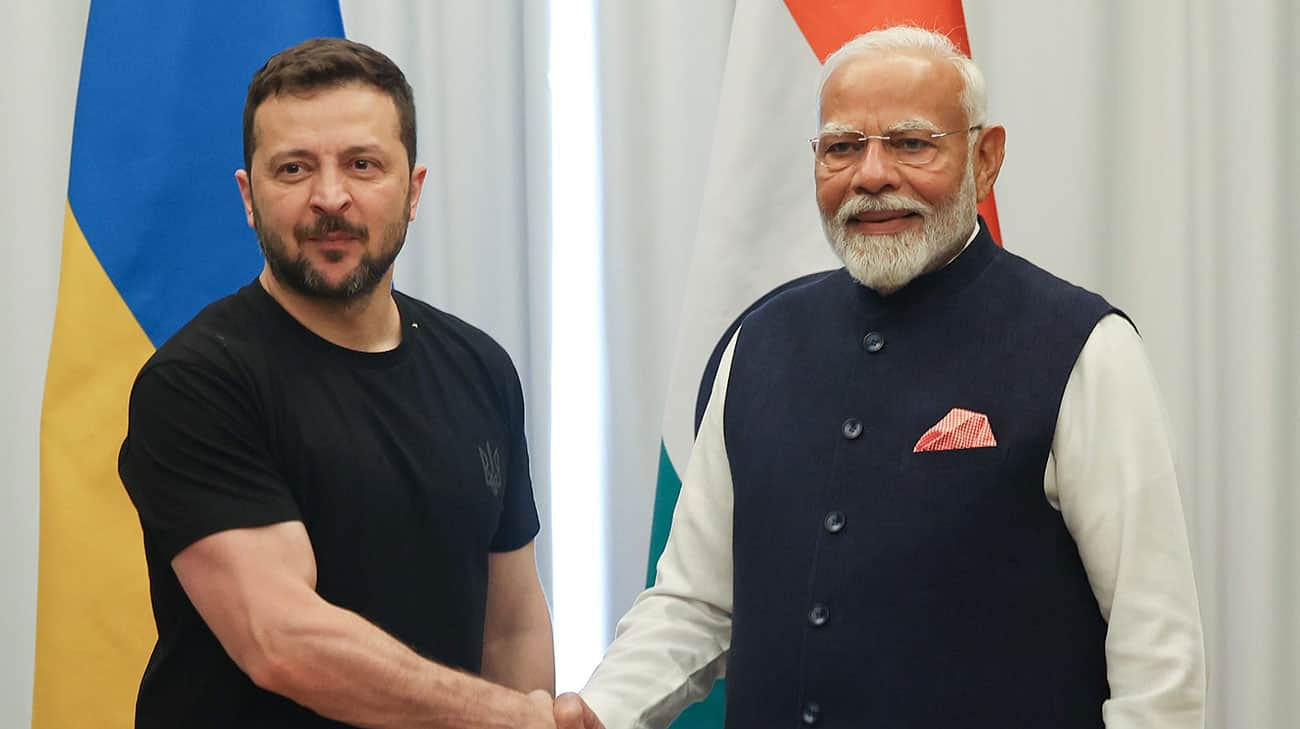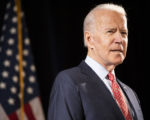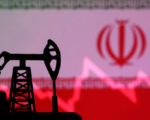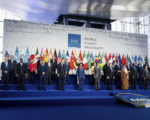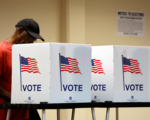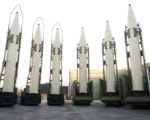India’s diplomatic balancing act has come under the spotlight as Prime Minister Narendra Modi embarks on a visit to Ukraine, a move that will be closely watched by Russia, India’s long-time ally. As one of the few nations maintaining strong relationships with both Russia and the West, India has found itself navigating a complex web of alliances, particularly since Russia’s invasion of Ukraine in 2022, which has dramatically reshaped global geopolitical dynamics.
Modi’s government has maintained a neutral stance in the ongoing conflict, avoiding condemnation of Russia and continuing to import discounted Russian oil despite widespread Western boycotts. This strategy has drawn criticism from Western nations, which see such trade as indirectly funding Russia’s war efforts. However, India has also signaled an interest in strengthening its relationship with Ukraine, evidenced by Modi’s visit to Kyiv at the invitation of Ukrainian President Volodymyr Zelenskyy. This visit, the first by an Indian leader since Ukraine gained independence in 1991, marks a significant moment in India-Ukraine relations.
While India’s trade relationship with Ukraine is far smaller compared to its extensive economic and defense ties with Russia, the visit suggests that India is seeking to broaden its diplomatic engagements amid the ongoing conflict. India has historically imported defense equipment from Ukraine, and the two countries share educational ties, with many Indian students studying in Ukraine.

The timing of the visit, following Modi’s recent meeting with Russian President Vladimir Putin, adds another layer of complexity to India’s foreign policy. During that meeting, which coincided with a deadly attack on a children’s hospital in Kyiv, Modi expressed sorrow over the loss of innocent lives, yet emphasized India’s commitment to its “mutual trust” and “mutual respect” with Russia. Despite the controversial optics of the visit, both leaders pledged to deepen bilateral cooperation across various sectors, from agriculture to energy.
India’s reluctance to directly criticize Russia stems from pragmatic considerations. As a major importer of Russian defense supplies, with over 60% of its defense equipment sourced from Russia, India is keen to maintain stable relations with Moscow. Furthermore, India views Russia as a counterbalance to China, its regional rival in Asia. For these reasons, New Delhi has refrained from aligning itself with the West in labeling Russia as an aggressor, choosing instead to chart a more independent course.
India is also seen as a potential mediator in future peace talks between Russia and Ukraine, although Indian officials have expressed hesitance about playing such a role while the conflict remains active. Nevertheless, experts suggest that India is interested in facilitating a stable European security architecture and ensuring that Russia remains engaged in the global order rather than becoming overly dependent on China.
Ultimately, Modi’s visit to Ukraine highlights India’s desire to see an end to the conflict and underscores its broader strategy of maintaining diplomatic flexibility while preserving its key alliances. India’s approach reflects its global ambitions and its efforts to maintain influence in a rapidly changing geopolitical landscape.


